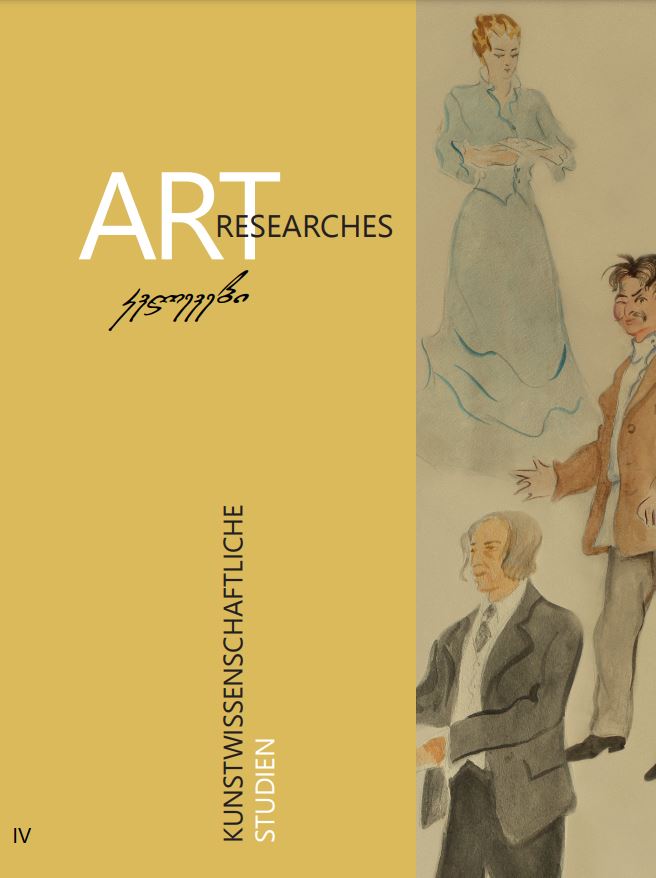Theater Performance As A Metaphor (Main Accents Of The Post-communist Period On The Theatrical Stages Of The Georgian Capital)
Main Article Content
Abstract
The article “Theatre Performance as Metaphor” is a paper dealing with the study of the theatre performances of the post-communist period in Georgia from the socio-political point of view. First of all, on the basis of the studies of well-known theorists – Gregory L. Ulmer, Roland Barthes, Guy Debord and others, the essence, peculiarities, aesthetic functions, standards of the effect of metaphor are explained. The main part of the article reports on the tendency of founding alternative theatres and the theatrical processes that were activated in the 80s and 90s of the 20th century.
For the new generation of the 80s, the repertoire of the “Small Stage” of the Rustaveli Theatre, which was extremely popular at that time, is considered the beginning of this new period. This repertoire and stage was founded at the College of Theatre Studies under the auspices and guidance of the director Gizo Jordania. The article also mentions the experimental youth theatre founded by Shalva Gazerelia on the basis of the State Theatre for Young Audiences. Plays by playwright Irakli Samsonadze, then a beginner, were performed on the stage of this experimental theatre – “The Lucky Ticket” and “Easter at the Abolished Cemetery”. These performances are perceived as the beginning of a new theatre reform. These performances showed the confrontation of generations that had come to a head in the 90s, the absurdity of everyday life, approaches to the aesthetics of absurd theatre. These performances indicated that it was time to find a new theatre model, radical process of change, the indispensability of the movement of small theatres.
In this article, the following themes are highlighted – radically opposed themes in theatre art in the 1990s (idea of national specificity, nihilism, compulsion for self-determination, problems of loneliness and national minorities, etc.). Subchapters present the brief history and aesthetics of alternative theatre spaces, new theatre forms – these are: “The Rustaveli Cellar Theatre”, “The Vake Cellar Theatre”, “The Freedom Theatre”, “The Royal District Theatre”. Also examined are the most important performances of the new directors: Levan Zuladze, Avtandil Varsimashvili, Goga Tavadze, Giorgi Margvelashvili, Andro Enukidze, Dimitri Khvtisiashvili (“Faust”, “Irine’s Happiness”, “The Cherry Orchard”, “Danse macabre”, etc.). The article also examines performances of the 21st century (“A Doll’s House” by V. Khuzishvili, “Nugzar and Mephistopheles” by G. Tavadze, “The Wretch” by M. Charkviani, “The Labyrinth” by G. Shalutashvili, “Hamlet” by L. Zuladze, “Ghosts” by S. Aslamasishvili, “Hedda Gabler” by T. Popiashvili, etc.). The formation of the principles of “theatre cruelty”, which, together with other tendencies, are considered a metaphor of the new Georgian reality, social mood and attitude, as well as theatre processes. The young directors’ drive for non-traditional, scandalous representations of the classics (Chekhov, Shakespeare, Ibsen, Kldiashvili, Strindberg) is also discussed.
